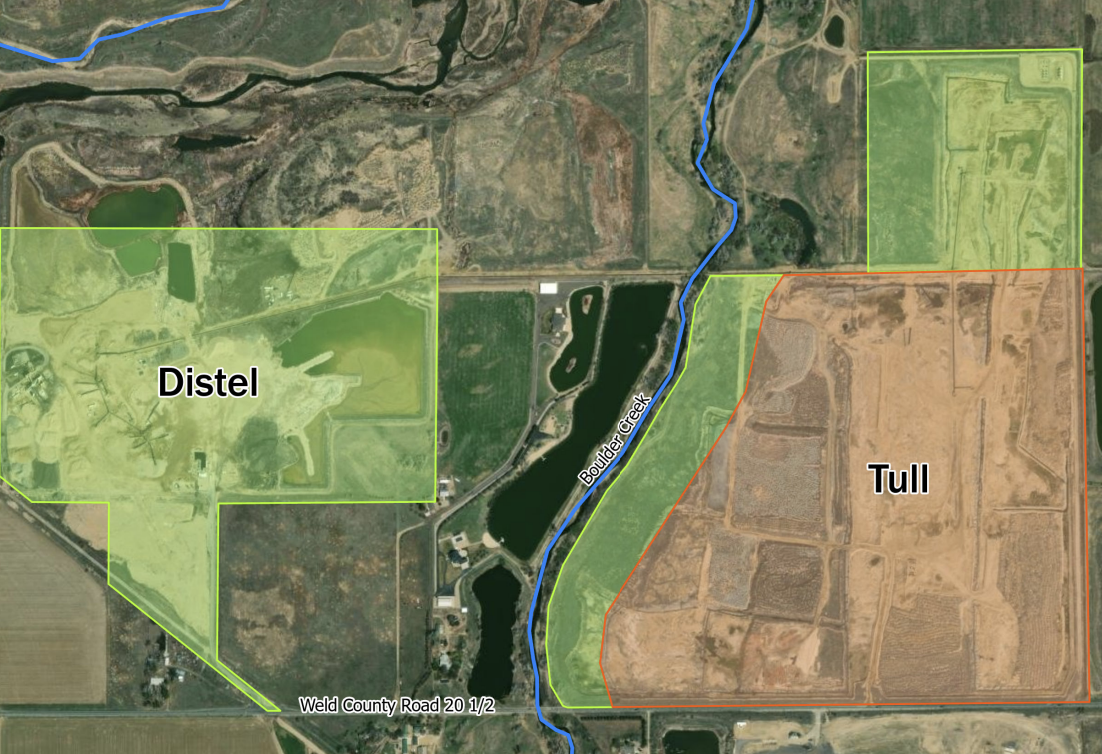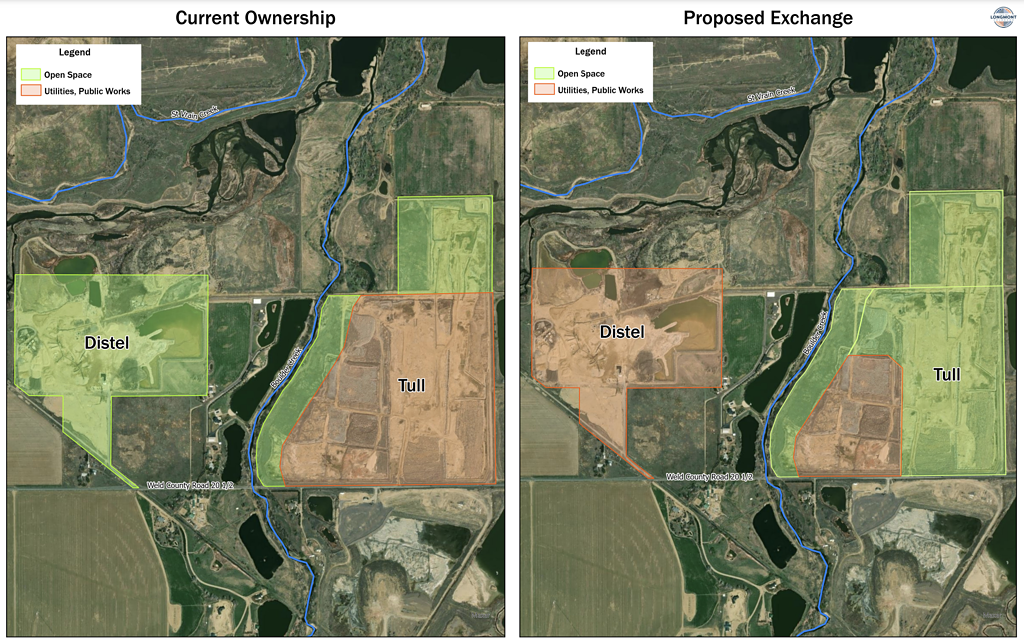
Longmont City Council on Tuesday agreed to pursue a land swap that could eventually facilitate construction of a composting facility in partnership with Boulder County.
That facility could be located on the Distel property, which in 2019 was purchased with the Tull property, a collective 331 acres southeast of Longmont, for $3.78 million. Open space money was used to buy Distel, which is leased to a company for gravel mining, and a portion of Tull.
If the city wants to use the land for anything other than open space purchases, the properties must be formally “disposed,” requiring approval from the Parks and Recreation Advisory Board (PRAB).
The proposal is to transfer ownership of Tull to the city’s department of parks and natural resources — save for 66 acres that will be used for public works purposes “for several decades.” (That portion would eventually become open space as well.) Ownership of Distel would be transferred out of open space for potential use as a composting facility, a relocation of the fire training center, and/or a future
municipal training center.
“Due to the extent of industrial disturbance on Distel,” staff wrote in notes to council ahead of Tuesday’s vote, “the probability of ecological restoration success and the likelihood of achieving Open Space criteria and goals … is greater on Tull.”

A county feasibility study on a composting facility is expected in the second quarter of 2025, according to a press release Boulder County sent out touting Longmont’s consideration of the land swap. City and county officials together toured a California composting facility in December.
“We think this is a great partnership opportunity,” said Boulder County Commissioner Ashley Stolzmann in the release. “I look forward to collaborating with Longmont and being a part of the county’s own effort at making this significant move towards zero waste.”
On a unanimous vote, the matter was referred to Longmont’s PRAB. A hearing for that body has not yet been scheduled.
Tyler Hickman contributed reporting.
